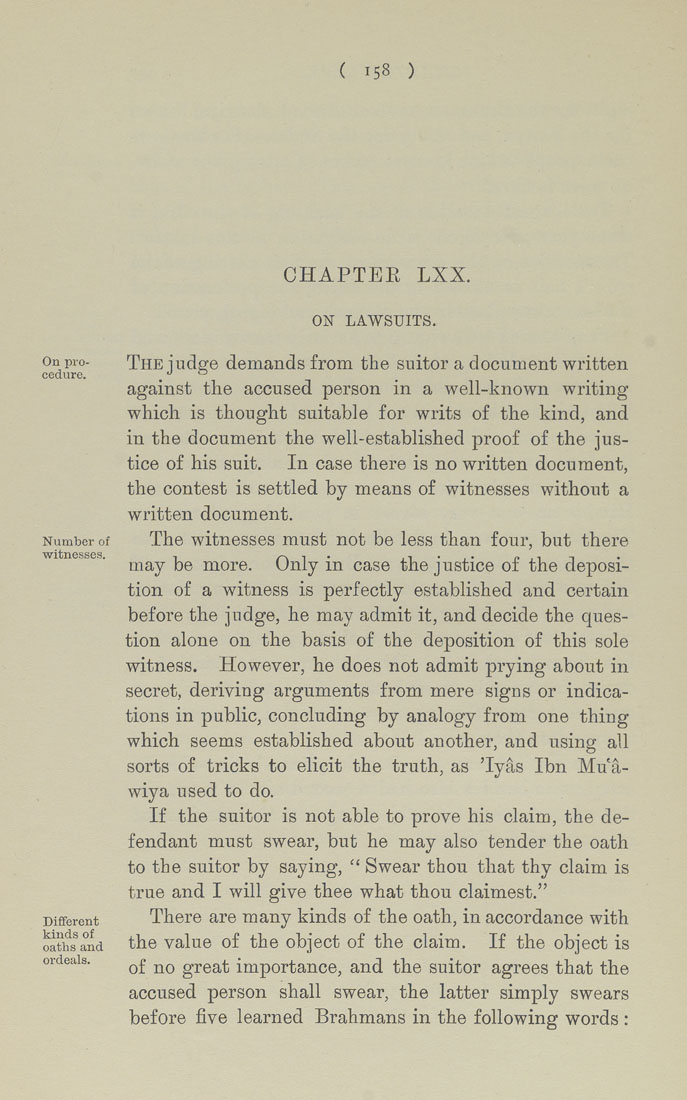Bīrūnī, Muḥammad ibn Aḥmad, Alberuni's India (v. 2)
(London : Kegan Paul, Trench, Trübner & Co., 1910.)
|
||
|
|
|
|
| Page 158 |

( 158 ) CHAPTER LXX. ON LAWSUITS. On pro¬ cedure. Number of witnesses. Different kinds of oaths and ordeals. The judge demands from the suitor a document written against the accused person in a well-known writing which is thought suitable for writs of the kind, and in the document the well-established proof of the jus¬ tice of his suit. In case there is no written document, the contest is settled by means of witnesses without a written document. The witnesses must not be less than four, but there may be more. Only in case the justice of the deposi¬ tion of a witness is perfectly established and certain before the judge, he may admit it, and decide the ques¬ tion alone on the basis of the deposition of this sole witness. However, he does not admit prying about in secret, deriving arguments from mere signs or indica¬ tions in public, concluding by analogy from one thing which seems established about another, and using all sorts of tricks to elicit the truth, as 'lyas Ibn Mu'a- wiya used to do. If the suitor is not able to prove his claim, the de¬ fendant must swear, but he may also tender the oath to the suitor by saying, " Swear thou that thy claim is true and I will give thee what thou claimest." There are many kinds of the oath, in accordance with the value of the object of the claim. If the object is of no great importance, and the suitor agrees that the accused person shall swear, the latter simply swears before five learned Brahmans in the following words : |
| Page 158 |







